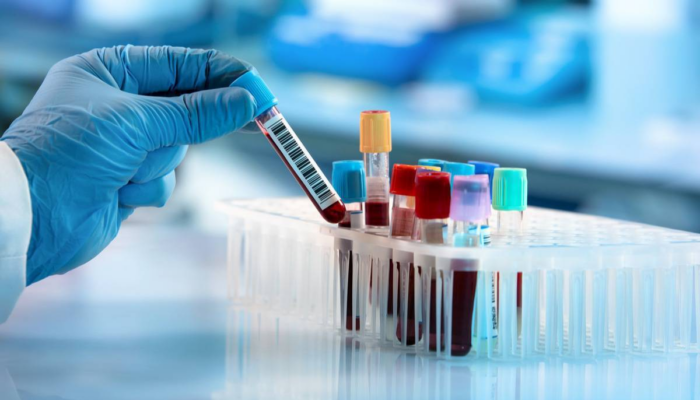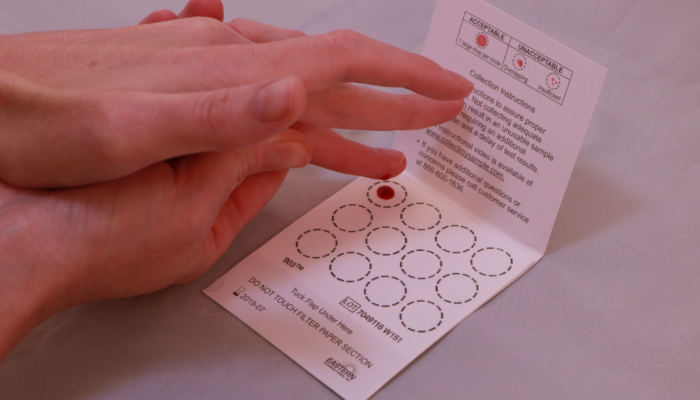Uzone.id — Whether it’s for medical reasons or just personal curiosity, knowing your type of blood is important. This knowledge can save your life and help others. On the flip side, being unknown about your blood type can cause problems when it comes to your overall wellness.
So, it’s crucial to know whether you’re type A, B, or O. Having this piece of information can help you in an emergency or make completing a form a little easier.

Sadly, there are still a lot of people who don’t know–and don’t care about their blood type. According to a 2019 CBS News poll, only 66% of Americans reported knowing their blood type.
Considering blood type is vital to your health, including your heart health — and saving your life in an emergency, how can you figure it out? Let’s try these 3 methods to find out about your blood.
Blood Test at a Doctor’s Office
The most accurate way to determine your blood type is through a blood test at your doctor’s office. During this test, a small sample of your blood is taken and analyzed to check for the presence of certain proteins called antigens.

These antigens determine your blood type: A, B, AB, or O, and whether it’s Rh-positive or Rh-negative.
According to Dr. David K. Spiro, a clinical immunologist, “A blood test is the gold standard for knowing your blood type. It’s not only accurate but also gives you crucial information that could be lifesaving in an emergency.”
While this method is usually recommended when you’re undergoing medical tests or preparing for surgery, you can request it anytime during a routine health check-up.
Blood Type Test Kits at Home
If you have no time to visit a doctor, you still can use at-home blood typing kits. Considering not all users understand medical stuff, these kits are usually easy to use and give you quick results.

They also come with a card, a lancet (a small needle), and reagents that react to your blood. Based on Healthline, they will ask that you prick your finger with a lancet and put drops of your blood on a special card.
Here’s how it works:
1. Prick your finger with the lancet.
2. Drop small amounts of your blood onto specific spots on the card.
3. Watch how the blood reacts to the chemicals. Different reactions indicate different blood types.
If the blood clumps when mixed with the A reagent but not with the B reagent, you’re likely to type A. It’s simple and fast, taking only a few minutes.
However, while at-home kits are convenient, they may not be as accurate as laboratory tests.
“If you’re using a kit, be sure to follow the instructions carefully, but remember that for any critical medical information, it’s always best to get confirmation from a healthcare provider,” says Dr. Stephanie Stevens, a family medicine specialist.
Blood Donation—it’s free!
One of the easiest–and free–ways to find out your blood type, and do something good in the process, is by donating blood.
Blood donation centers will always check your blood type before storing it. Plus, they usually give you a donor card that states your blood type for future reference.
Not only is this method free, but you’re also helping someone who might desperately need your specific type of blood.
According to the American Red Cross, “Blood donations save millions of lives every year, and knowing your blood type is essential for ensuring the right match between donors and recipients.”
So, why is knowing our blood type important?
Now that you know how to figure out your blood type, let’s talk about why it’s so important.
First scenario, in accidents or emergency surgeries, knowing your blood type can be the difference between life and death.
If you need a blood transfusion, your doctors need to make sure the blood they give you is compatible with your type. Receiving the wrong type can cause dangerous reactions.
Second, pregnancy and childbirth. If you’re Rh-negative and the baby’s father is Rh-positive, it can lead to complications during pregnancy, as your body may see the baby’s blood as a foreign threat. In these cases, doctors will take extra precautions to ensure both mother and baby stay healthy.
Third, the type of blood is essential when you’re donating blood or receiving transfusions. Different blood types can only be donated to certain people.
For example, O-negative blood is called the “universal donor” because it can be given to anyone. Meanwhile, AB-positive people are considered “universal recipients” because they can receive any blood type. This is why knowing your blood type is crucial for donating and receiving blood safely.
While it may seem like a small detail, knowing your blood type is important. Whether you choose to get a blood test at the doctor’s office, use a home kit, or find out through donating blood, this simple piece of information could save your life—or someone else’s.
















